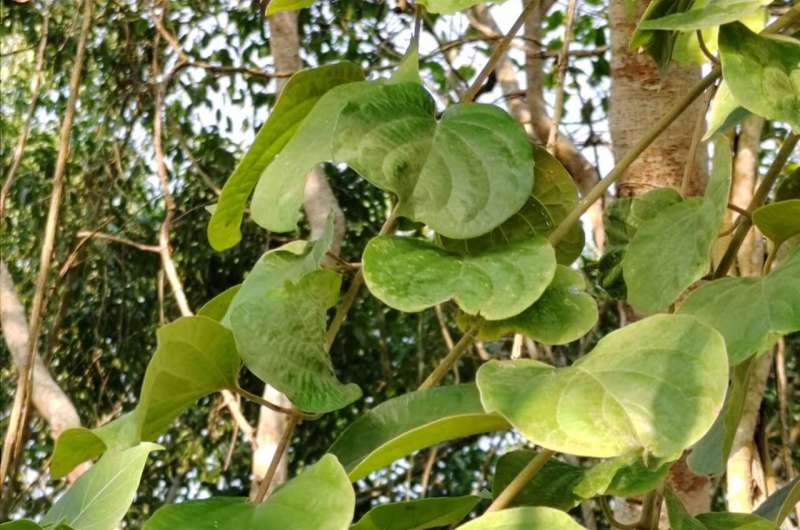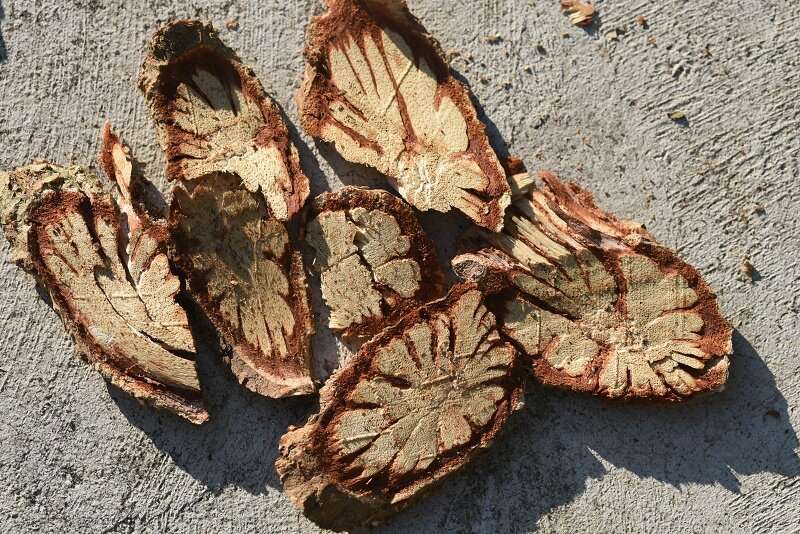Aspidopterys obcordata. Credit: Xu Youkai
Urolithiasis is usually treated by surgery. However, the high recurrence rate and high cost of treatment call for a non-surgical medical solution. In the Dai minority region of China, the perennial woody vine of Aspidopterys obcordata (Hei Gai Guan) has been used as a folk medicine for the treatment of urinary tract infections, cystitis and urinary tract stones and also treated as a drink for the prevention of kidney stones. However, the material basis and underlying mechanisms remain unclear.
In a study published in Carbohydrate Polymers, researchers from the Xishuangbanna Tropical Botanical Garden (XTBG) of the Chinese Academy of Sciences evaluated an inulin-like polysaccharide purified from the aqueous extract of Aspidopterys obcordata for its inhibitory activity against calcium oxalate crystallization in vitro, in cells and in fruit fly models. They reported the isolation and biological evaluation of a 2.3 kD inulin-like A. obcordata fructan (AOFOS).
AOFOS was isolated by size exclusion column chromatography and characterized by ultrahigh-performance liquid chromatography-ion trap-time of flight mass spectrometry, nuclear magnetic resonance spectroscopy, gas chromatography-mass spectrometry and high-performance gel permeation chromatography.
Medicinal parts of Aspidopterys obcordata. Credit: Xu Youkai
The researchers also found that AOFOS significantly reduced the size of calcium oxalate crystals in Drosophila by inhibiting the formation of large size crystals and the generation rate of calcium oxalate crystals, as well as the calcium oxalate monohydrate crystallization.
"AOFOS is expected to have a desirable effect in the prevention and treatment of urolithiasis," said Xu Youkai of XTBG.
More information: Peng Sun et al, Aspidopterys obcordata vine inulin fructan affects urolithiasis by modifying calcium oxalate crystallization, Carbohydrate Polymers (2022). DOI: 10.1016/j.carbpol.2022.119777
Provided by Chinese Academy of Sciences























